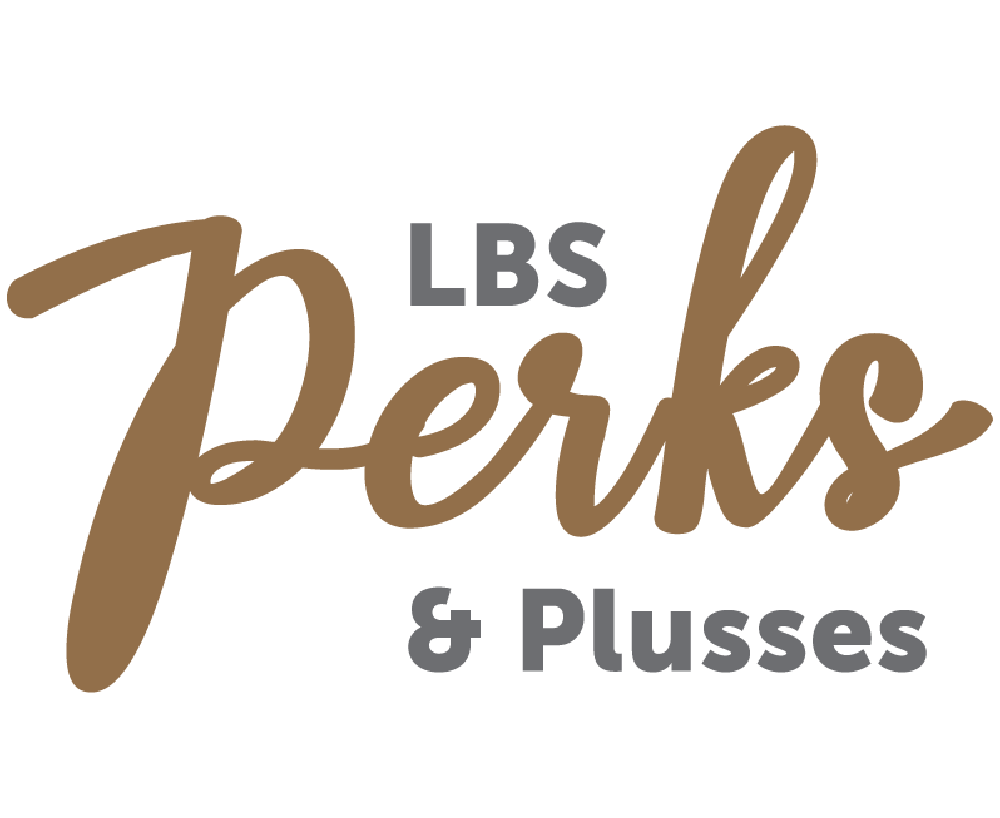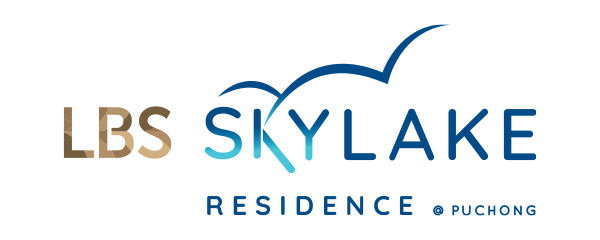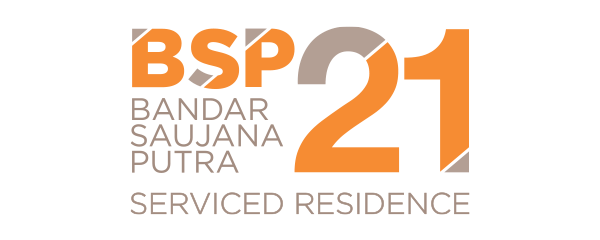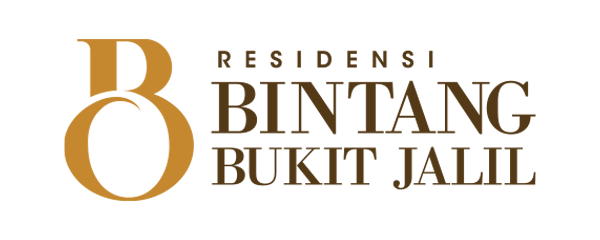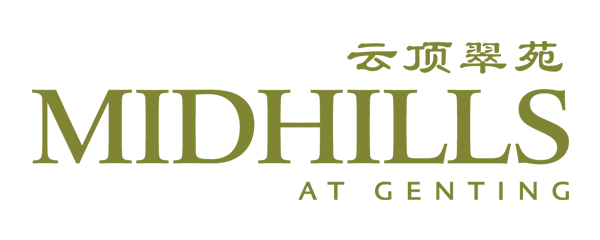4 October 2021
Untuk Siaran Segera
LBS BENTANG SARANAN UNTUK RANGSANG PASARAN PERUMAHAN
Petaling Jaya, 4 Oktober 2021 – LBS Bina Group Berhad (“LBS” atau “Kumpulan) hari ini menyenaraikan saranan-saranan bagi Belanjawan 2022 yang akan dibentangkan di Parlimen pada 29 Oktober 2021.
Selaku pemaju projek perumahan mampu milik yang terkemuka, LBS terus mempelbagaikan strategi bagi membantu industri hartanah di samping mengharungi cabaran pandemik Covid-19. Pasaran perumahan yang kukuh dilihat sebagai kesan positif yang berganda terhadap ekonomi negara. Sehubungan dengan itu, LBS berhasrat untuk membentangkan cadangan-cadangan berikut bagi membantu Kerajaan merangsang ekonomi perumahan seiring dengan inisiatif pemulihan.
a) Mengekalkan Pelaksanaan Kempen Pemilikan Rumah (HOC)
LBS melihat HOC sebagai dorongan bagi para pemaju hartanah untuk menjana jualan di sebalik langkah berhati-hati yang diambil oleh bakal pembeli berikutan pandemik Covid-19. Ketika negara mula melalui fasa pemulihan, LBS telah menyaksikan sendiri kesan positif ke atas pasaran hartanah menerusi HOC dan berharap Kerajaan akan terus mengekalkannya termasuk pengecualian duti setem bagi pembelian yang menjangkau sehingga RM1 juta pertama. Ini memastikan rantaian bekalan bagi industri pembinaan dan pembangunan hartanah berjalan lancar tanpa sebarang halangan ketika sentimen untuk membeli masih ada.
b) Kelonggaran Syarat Bagi Program Rumah Kedua Malaysia (MM2H)
LBS sentiasa menyokong Program MM2H kerana ianya dilihat memberi kesan positif dalam usaha untuk menarik warga asing menetap di Malaysia dan amat mengalu-alukan pelancaran semula Program MM2H. Walau bagaimanapun, LBS berpendapat bahawa semakan semula bagi syarat Program MM2H untuk pemohon baru mungkin terlalu ketat dan menghalang warga asing untuk bekerja dan tinggal di Malaysia. LBS berharap agar Kerajaan mempertimbangkan beberapa cadangan mengenai kriteria Program MM2H yang baru seperti berikut:
i. menurunkan kelayakan pendapatan minimum bagi pemohon kepada syarat asal iaitu RM10,000 sebulan;
ii. mengurangkan jumlah minimum kecairan aset kepada RM500,000 berbanding RM1.5 juta;
iii. mengurangkan jumlah minimum deposit tetap untuk pembukaan akaun bank di Malaysia kepada RM300,000 berbanding RM1 juta; dan
iv. mengekalkan tempoh MM2H selama 10 tahun.
LBS optimis bahawa cadangan yang dikemukakan di atas adalah cukup ketat dan mampu menarik warga asing berkemahiran tinggi di samping memacu kejayaan program MM2H.
c) Insentif Bagi Penggunaan Sistem Pembangunan Industri (“IBS”)
Menyedari kepentingan untuk melaksanakan proses penyerahan hak milik hartanah berjalan lancar, LBS telah mengadaptasi penggunaan sistem IBS, di mana terbukti berupaya mengurangkan kos dan tempoh pembinaan tanpa kompromi kepada kualiti pembuatan. LBS mengalu-alukan inisiatif Kerajaan di dalam mendorong penggunaan IBS dengan memberikan peruntukan cukai pelaburan sebanyak 60% ke atas perbelanjaan modal yang memenuhi syarat iaitu perlu dilakukan dalam tempoh lima tahun, di mana ianya berupaya mengimbangi hingga 70% dari pendapatan berkanun syarikat. Walau bagaimanapun, LBS berharap agar Kerajaan mempertimbangkan untuk memperluaskan insentif cukai ini dengan mengambil kira pemaju IBS sedia ada dan pemberian insentif tidak tertumpu kepada pemaju IBS yang baru sahaja. Dengan ini, LBS dapat menyalur kos yang dijimatkan bagi meningkatkan penyelidikan & pembangunan (R&D) ke atas rekaan dan penggunaan teknologi IBS.
d) Pengurangan Kos Pematuhan
Kebanyakan pemaju perumahan telah melihat perniagaan mereka terjejas oleh pandemik Covid-19, berikutan kerja-kerja pembinaan terpaksa dihentikan mengikut Prosidur Operasi Standard (SOP) Kerajaan. Oleh itu, Kumpulan berharap agar Kerajaan dapat memperkenalkan langkah-langkah untuk membantu pemaju. Secara khusus, LBS berharap agar Kerajaan dapat mengurangkan kos pematuhan yang ditanggung oleh pemaju misalnya, mengurangkan caj pembangunan, premium penukaran tanah atau permohonan hak milik strata. Penjimatan dari langkah-langkah ini sangat bermanfaat dan dapat disalurkan semula kepada pembeli rumah melalui penawaran harga yang lebih berpatutan.
e) Insentif Bagi Mengatasi Kenaikan Kos Bahan Pembinaan
Harga yang turun naik serta peningkatan kos bahan binaan seperti keluli dan simen kemungkinan akan memberi kesan buruk terhadap kos perumahan. Sebagai contoh, harga keluli meningkat di antara 25 ke 30% dalam tempoh dua bulan dari November 2020 hingga Januari 2021. Turun naik harga meningkatkan tekanan pada kontraktor dan pemaju kerana kos tambahan dari kedua-dua bahan binaan dan kos pematuhan SOP. Bagi mengatasi hal ini, LBS berharap agar Kerajaan mempertimbangkan untuk mengurangkan biaya atau memperkenalkan harga kawalan ketat ke atas bahan binaan. LBS percaya langkah ini akan memastikan para pemaju untuk tidak mengenakan kenaikan kos bahan kepada pemilik rumah.
f) Pengurangan Ambang Minimum Bagi Pemilikan Hartanah Warga Asing
Keadaan tidak menentu bagi pasaran hartanah semasa mewujudkan kegusaran di kalangan pemaju. Untuk meredakannya, LBS berharap ambang harga semasa bagi warga asing yang ingin membeli hartanah di Malaysia dikurangkan kepada RM500,000 untuk semua negeri. Melangkah ke hadapan, pendapatan dari inventori yang tidak terjual ini membolehkan pemaju hartanah merancang aliran tunai bagi pembangunan hartanah yang lain.
g) Pengecualian Cukai Pekerja Asing Di Sektor Pembinaan
Sektor pembinaan amat bergantung kepada buruh asing untuk membina rumah. Walau bagaimanapun, kos berkaitan untuk membawa pekerja asing agak tinggi. Oleh itu, LBS berharap agar Kerajaan mempertimbangkan untuk memberi pengecualian terhadap cukai pekerja asing. Dengan ini, ia akan membantu mengurangkan kos pembinaan yang seterusnya akan mengurangkan kos pembangunan hartanah dan menjadikan ianya sebagai hartanah mampu milik.
Mengulas senarai cadangan-cadangan ini, Pengerusi Eksekutif LBS, Tan Sri Lim Hock San berkata, “Kami berharap Belanjawan 2022 akan menyenaraikan polisi rangsangan yang tepat bagi menambahbaik sektor pembangunan hartanah di samping menggalakkan pemilikan hartanah. Kerajaan boleh mempertimbangkan mana-mana saranan kami yang dilihat berupaya merancakkan semula pasaran dan industri hartanah.”
Beliau menambah, “Dengan pandemik dan pelaksanaan Perintah Kawalan Pergerakan (PKP), pasaran dilihat agak perlahan dan menimbulkan kebimbangan di kalangan para pelabur. Diharap dengan mekanisma bantuan yang tepat dari Kerajaan dapat meningkatkan pemilikan rumah di kalangan rakyat Malaysia.”
Untuk maklumat lanjut mengenai LBS, layari: https://lbs.com.my/.
-Tamat-
Untuk Siaran Segera
LBS BENTANG SARANAN UNTUK RANGSANG PASARAN PERUMAHAN
Petaling Jaya, 4 Oktober 2021 – LBS Bina Group Berhad (“LBS” atau “Kumpulan) hari ini menyenaraikan saranan-saranan bagi Belanjawan 2022 yang akan dibentangkan di Parlimen pada 29 Oktober 2021.
Selaku pemaju projek perumahan mampu milik yang terkemuka, LBS terus mempelbagaikan strategi bagi membantu industri hartanah di samping mengharungi cabaran pandemik Covid-19. Pasaran perumahan yang kukuh dilihat sebagai kesan positif yang berganda terhadap ekonomi negara. Sehubungan dengan itu, LBS berhasrat untuk membentangkan cadangan-cadangan berikut bagi membantu Kerajaan merangsang ekonomi perumahan seiring dengan inisiatif pemulihan.
a) Mengekalkan Pelaksanaan Kempen Pemilikan Rumah (HOC)
LBS melihat HOC sebagai dorongan bagi para pemaju hartanah untuk menjana jualan di sebalik langkah berhati-hati yang diambil oleh bakal pembeli berikutan pandemik Covid-19. Ketika negara mula melalui fasa pemulihan, LBS telah menyaksikan sendiri kesan positif ke atas pasaran hartanah menerusi HOC dan berharap Kerajaan akan terus mengekalkannya termasuk pengecualian duti setem bagi pembelian yang menjangkau sehingga RM1 juta pertama. Ini memastikan rantaian bekalan bagi industri pembinaan dan pembangunan hartanah berjalan lancar tanpa sebarang halangan ketika sentimen untuk membeli masih ada.
b) Kelonggaran Syarat Bagi Program Rumah Kedua Malaysia (MM2H)
LBS sentiasa menyokong Program MM2H kerana ianya dilihat memberi kesan positif dalam usaha untuk menarik warga asing menetap di Malaysia dan amat mengalu-alukan pelancaran semula Program MM2H. Walau bagaimanapun, LBS berpendapat bahawa semakan semula bagi syarat Program MM2H untuk pemohon baru mungkin terlalu ketat dan menghalang warga asing untuk bekerja dan tinggal di Malaysia. LBS berharap agar Kerajaan mempertimbangkan beberapa cadangan mengenai kriteria Program MM2H yang baru seperti berikut:
i. menurunkan kelayakan pendapatan minimum bagi pemohon kepada syarat asal iaitu RM10,000 sebulan;
ii. mengurangkan jumlah minimum kecairan aset kepada RM500,000 berbanding RM1.5 juta;
iii. mengurangkan jumlah minimum deposit tetap untuk pembukaan akaun bank di Malaysia kepada RM300,000 berbanding RM1 juta; dan
iv. mengekalkan tempoh MM2H selama 10 tahun.
LBS optimis bahawa cadangan yang dikemukakan di atas adalah cukup ketat dan mampu menarik warga asing berkemahiran tinggi di samping memacu kejayaan program MM2H.
c) Insentif Bagi Penggunaan Sistem Pembangunan Industri (“IBS”)
Menyedari kepentingan untuk melaksanakan proses penyerahan hak milik hartanah berjalan lancar, LBS telah mengadaptasi penggunaan sistem IBS, di mana terbukti berupaya mengurangkan kos dan tempoh pembinaan tanpa kompromi kepada kualiti pembuatan. LBS mengalu-alukan inisiatif Kerajaan di dalam mendorong penggunaan IBS dengan memberikan peruntukan cukai pelaburan sebanyak 60% ke atas perbelanjaan modal yang memenuhi syarat iaitu perlu dilakukan dalam tempoh lima tahun, di mana ianya berupaya mengimbangi hingga 70% dari pendapatan berkanun syarikat. Walau bagaimanapun, LBS berharap agar Kerajaan mempertimbangkan untuk memperluaskan insentif cukai ini dengan mengambil kira pemaju IBS sedia ada dan pemberian insentif tidak tertumpu kepada pemaju IBS yang baru sahaja. Dengan ini, LBS dapat menyalur kos yang dijimatkan bagi meningkatkan penyelidikan & pembangunan (R&D) ke atas rekaan dan penggunaan teknologi IBS.
d) Pengurangan Kos Pematuhan
Kebanyakan pemaju perumahan telah melihat perniagaan mereka terjejas oleh pandemik Covid-19, berikutan kerja-kerja pembinaan terpaksa dihentikan mengikut Prosidur Operasi Standard (SOP) Kerajaan. Oleh itu, Kumpulan berharap agar Kerajaan dapat memperkenalkan langkah-langkah untuk membantu pemaju. Secara khusus, LBS berharap agar Kerajaan dapat mengurangkan kos pematuhan yang ditanggung oleh pemaju misalnya, mengurangkan caj pembangunan, premium penukaran tanah atau permohonan hak milik strata. Penjimatan dari langkah-langkah ini sangat bermanfaat dan dapat disalurkan semula kepada pembeli rumah melalui penawaran harga yang lebih berpatutan.
e) Insentif Bagi Mengatasi Kenaikan Kos Bahan Pembinaan
Harga yang turun naik serta peningkatan kos bahan binaan seperti keluli dan simen kemungkinan akan memberi kesan buruk terhadap kos perumahan. Sebagai contoh, harga keluli meningkat di antara 25 ke 30% dalam tempoh dua bulan dari November 2020 hingga Januari 2021. Turun naik harga meningkatkan tekanan pada kontraktor dan pemaju kerana kos tambahan dari kedua-dua bahan binaan dan kos pematuhan SOP. Bagi mengatasi hal ini, LBS berharap agar Kerajaan mempertimbangkan untuk mengurangkan biaya atau memperkenalkan harga kawalan ketat ke atas bahan binaan. LBS percaya langkah ini akan memastikan para pemaju untuk tidak mengenakan kenaikan kos bahan kepada pemilik rumah.
f) Pengurangan Ambang Minimum Bagi Pemilikan Hartanah Warga Asing
Keadaan tidak menentu bagi pasaran hartanah semasa mewujudkan kegusaran di kalangan pemaju. Untuk meredakannya, LBS berharap ambang harga semasa bagi warga asing yang ingin membeli hartanah di Malaysia dikurangkan kepada RM500,000 untuk semua negeri. Melangkah ke hadapan, pendapatan dari inventori yang tidak terjual ini membolehkan pemaju hartanah merancang aliran tunai bagi pembangunan hartanah yang lain.
g) Pengecualian Cukai Pekerja Asing Di Sektor Pembinaan
Sektor pembinaan amat bergantung kepada buruh asing untuk membina rumah. Walau bagaimanapun, kos berkaitan untuk membawa pekerja asing agak tinggi. Oleh itu, LBS berharap agar Kerajaan mempertimbangkan untuk memberi pengecualian terhadap cukai pekerja asing. Dengan ini, ia akan membantu mengurangkan kos pembinaan yang seterusnya akan mengurangkan kos pembangunan hartanah dan menjadikan ianya sebagai hartanah mampu milik.
Mengulas senarai cadangan-cadangan ini, Pengerusi Eksekutif LBS, Tan Sri Lim Hock San berkata, “Kami berharap Belanjawan 2022 akan menyenaraikan polisi rangsangan yang tepat bagi menambahbaik sektor pembangunan hartanah di samping menggalakkan pemilikan hartanah. Kerajaan boleh mempertimbangkan mana-mana saranan kami yang dilihat berupaya merancakkan semula pasaran dan industri hartanah.”
Beliau menambah, “Dengan pandemik dan pelaksanaan Perintah Kawalan Pergerakan (PKP), pasaran dilihat agak perlahan dan menimbulkan kebimbangan di kalangan para pelabur. Diharap dengan mekanisma bantuan yang tepat dari Kerajaan dapat meningkatkan pemilikan rumah di kalangan rakyat Malaysia.”
Untuk maklumat lanjut mengenai LBS, layari: https://lbs.com.my/.
-Tamat-
For Immediate Release
LBS PRESENTS PROPOSALS TO STIMULATE HOUSING MARKET
Petaling Jaya, 4 October 2021 – LBS Bina Group Berhad (“LBS” or the “Group”) today revealed its wish list for Budget 2022 which will be tabled in Parliament on 29 October 2021.
As a leading affordable housing developer, the Group is continuously strategising ways to help the property industry amidst the Covid-19 pandemic. A strong housing market will have a positive multiplier effect on the economy. Therefore, LBS wishes to propose to the Government the following measures in Budget 2022 to stimulate the housing economy as the nation progresses towards recovery.
a) Permanent implementation of the Home Ownership Campaign (“HOC”)
The HOC has been a welcome boost for property developers in generating property sales as buyers grew more cautious due to the Covid-19 pandemic. As the country returns to pre- pandemic normality, the Group has first-hand witnessed the positive impact of the HOC on the property market and hopes the Government will consider a permanent implementation of the HOC along with full stamp duty exemption for up to the first RM1 million of the property’s purchase price. This will ensure the entire supply chain of the construction and property development industry will continue to carry on without disruption while buying sentiment remains.
b) Relaxation of requirements for Malaysia My Second Home (MM2H) Programme
The Group has been a proud supporter of the Government’s MM2H Programme as it has created a positive effect in attracting foreign nationals to settle in Malaysia. While the Group welcomes the relaunch of the MM2H Programme, the Group believes that the recent revisions to the MM2H Programme requirements for new applicants may be too stringent and instead deter foreigners from choosing to work and live in Malaysia. LBS hopes that the Government will consider our suggestions on the newly revised MM2H Programme criteria as follows:
i. lower the qualifying minimum income for an applicant back to the original RM10,000 per
month;
ii. reduce the minimum amount of liquid assets to RM500,000 compared to RM1.5 million;
iii. reduce the minimum amount of fixed deposits in a Malaysian bank account to RM300,000 compared to RM1 million; and
iv. maintain the duration of the MM2H pass at 10 years.
The Group believes the proposals above are sufficiently stringent to attract skilled foreign nationals and ensure the continued success of the MM2H Programme.
c) Incentives for adoption of Industrialised Building System (“IBS”)
The Group is aware that timely handover of vacant possession for properties is an important obligation on their part. Therefore, the Group advocates for the usage of the IBS system, which has been proven to reduce construction time and cost without compromising on the housing quality.
LBS applauds the Government’s initiatives in encouraging the use of IBS by providing investment tax allowances of 60% on qualifying capital expenditure incurred within five years, which can be offset against up to 70% of the statutory income of the company. The Group however hopes that the Government will consider extending these tax incentives to include existing IBS players, rather than ring-fence the incentives to new players only. With this, the Group would be able to channel the further savings to facilitate expansion and increase their research & development (R&D) into growing its use of IBS technology.
d) Reduction in compliance costs
Developers have seen their business affected by the Covid-19 pandemic, with work being halted intermittently as per Government SOPs. The Group therefore hopes that the Government will introduce measures to assist developers. In particular, LBS wishes for the Government to reduce compliance costs borne by developers for example, reducing development charges, land conversion premiums or strata title application. Any savings from these measures would be hugely beneficial and can be passed on to homebuyers via a more affordable pricing point.
e) Incentives to counter the rising cost of materials
The fluctuations and rising cost of building materials such as steel and cement will likely have an adverse impact on the cost of housing. To illustrate, the price of steel increased between 25-30% over a two-month period from November 2020 to January 2021. The price volatility increases the pressure on contractors and developers as they are faced with additional costs from both building materials and SOP compliance costs. To counter this, LBS hopes that the Government will consider implementing a levy to reduce costs or introduce strict control prices over building materials. LBS believes this will ensure that developers do not pass on the increased cost of materials to homeowners.
f) Reduction in minimum threshold for foreign property ownership
The current property overhang situation is a concern for developers. To ease this, the Group hopes that the current price threshold for foreigners seeking to buy a property in Malaysia be reduced to RM500,000 for all states. Moving forward, this enables property developers with high unsold inventories to free up cashflow for other property developments.
g) Waiver of levy on foreign labours in the construction sector
The construction sector relies heavily on foreign labour to build homes. However, the costs associated with bringing in foreign labour may be high. Therefore, LBS hopes that the Government will consider providing a waiver on the levy for foreign labours. With this, it would help reduce the construction cost which in turn will reduce the development cost of properties thus making homes more affordable.
Commenting on the wish list, LBS Executive Chairman Tan Sri Lim Hock San said, “We hope that Budget 2022 will consist of the right stimulus policies to improve the property development sector as well as support homebuyers’ quest to purchase property. The Government can consider some suggestions from our wish list in order to revive the property market.”
He added, “With the pandemic and implementation of the Movement Control Order (MCO), the market has been sluggish and has caused uncertainty among investors. Thus, hopefully with the right aid from the government, this could lead to an increase in home ownership for Malaysians.”
For more information, please visit https://lbs.com.my/.
-End-
For Immediate Release
LBS PRESENTS PROPOSALS TO STIMULATE HOUSING MARKET
Petaling Jaya, 4 October 2021 – LBS Bina Group Berhad (“LBS” or the “Group”) today revealed its wish list for Budget 2022 which will be tabled in Parliament on 29 October 2021.
As a leading affordable housing developer, the Group is continuously strategising ways to help the property industry amidst the Covid-19 pandemic. A strong housing market will have a positive multiplier effect on the economy. Therefore, LBS wishes to propose to the Government the following measures in Budget 2022 to stimulate the housing economy as the nation progresses towards recovery.
a) Permanent implementation of the Home Ownership Campaign (“HOC”)
The HOC has been a welcome boost for property developers in generating property sales as buyers grew more cautious due to the Covid-19 pandemic. As the country returns to pre- pandemic normality, the Group has first-hand witnessed the positive impact of the HOC on the property market and hopes the Government will consider a permanent implementation of the HOC along with full stamp duty exemption for up to the first RM1 million of the property’s purchase price. This will ensure the entire supply chain of the construction and property development industry will continue to carry on without disruption while buying sentiment remains.
b) Relaxation of requirements for Malaysia My Second Home (MM2H) Programme
The Group has been a proud supporter of the Government’s MM2H Programme as it has created a positive effect in attracting foreign nationals to settle in Malaysia. While the Group welcomes the relaunch of the MM2H Programme, the Group believes that the recent revisions to the MM2H Programme requirements for new applicants may be too stringent and instead deter foreigners from choosing to work and live in Malaysia. LBS hopes that the Government will consider our suggestions on the newly revised MM2H Programme criteria as follows:
i. lower the qualifying minimum income for an applicant back to the original RM10,000 per
month;
ii. reduce the minimum amount of liquid assets to RM500,000 compared to RM1.5 million;
iii. reduce the minimum amount of fixed deposits in a Malaysian bank account to RM300,000 compared to RM1 million; and
iv. maintain the duration of the MM2H pass at 10 years.
The Group believes the proposals above are sufficiently stringent to attract skilled foreign nationals and ensure the continued success of the MM2H Programme.
c) Incentives for adoption of Industrialised Building System (“IBS”)
The Group is aware that timely handover of vacant possession for properties is an important obligation on their part. Therefore, the Group advocates for the usage of the IBS system, which has been proven to reduce construction time and cost without compromising on the housing quality.
LBS applauds the Government’s initiatives in encouraging the use of IBS by providing investment tax allowances of 60% on qualifying capital expenditure incurred within five years, which can be offset against up to 70% of the statutory income of the company. The Group however hopes that the Government will consider extending these tax incentives to include existing IBS players, rather than ring-fence the incentives to new players only. With this, the Group would be able to channel the further savings to facilitate expansion and increase their research & development (R&D) into growing its use of IBS technology.
d) Reduction in compliance costs
Developers have seen their business affected by the Covid-19 pandemic, with work being halted intermittently as per Government SOPs. The Group therefore hopes that the Government will introduce measures to assist developers. In particular, LBS wishes for the Government to reduce compliance costs borne by developers for example, reducing development charges, land conversion premiums or strata title application. Any savings from these measures would be hugely beneficial and can be passed on to homebuyers via a more affordable pricing point.
e) Incentives to counter the rising cost of materials
The fluctuations and rising cost of building materials such as steel and cement will likely have an adverse impact on the cost of housing. To illustrate, the price of steel increased between 25-30% over a two-month period from November 2020 to January 2021. The price volatility increases the pressure on contractors and developers as they are faced with additional costs from both building materials and SOP compliance costs. To counter this, LBS hopes that the Government will consider implementing a levy to reduce costs or introduce strict control prices over building materials. LBS believes this will ensure that developers do not pass on the increased cost of materials to homeowners.
f) Reduction in minimum threshold for foreign property ownership
The current property overhang situation is a concern for developers. To ease this, the Group hopes that the current price threshold for foreigners seeking to buy a property in Malaysia be reduced to RM500,000 for all states. Moving forward, this enables property developers with high unsold inventories to free up cashflow for other property developments.
g) Waiver of levy on foreign labours in the construction sector
The construction sector relies heavily on foreign labour to build homes. However, the costs associated with bringing in foreign labour may be high. Therefore, LBS hopes that the Government will consider providing a waiver on the levy for foreign labours. With this, it would help reduce the construction cost which in turn will reduce the development cost of properties thus making homes more affordable.
Commenting on the wish list, LBS Executive Chairman Tan Sri Lim Hock San said, “We hope that Budget 2022 will consist of the right stimulus policies to improve the property development sector as well as support homebuyers’ quest to purchase property. The Government can consider some suggestions from our wish list in order to revive the property market.”
He added, “With the pandemic and implementation of the Movement Control Order (MCO), the market has been sluggish and has caused uncertainty among investors. Thus, hopefully with the right aid from the government, this could lead to an increase in home ownership for Malaysians.”
For more information, please visit https://lbs.com.my/.
-End-
即时发布
2022年财政预算案
林木生集团冀政府提振房地产领域
(八打灵再也4日讯)林木生集团(LBS)冀望政府在2022年财政预算案推出数项政策和措施,以振兴房地产领域。我国政府将在今年10月29日向国会提呈财案。
作为领先可负担房屋发展商,林木生集团在疫情期间持续制定策略,协助房地产市场。房市强稳将对经济产生正面乘数效应。因此,该集团向政府提出以下建议,在我国逐步复苏之际,希望政府考虑在2022年财案中提振房地产领域。
(1) 永久实施拥屋计划(HOC)
疫情之下,房屋买家更为谨慎,拥屋计划对房地产发展商的房地产销售,起到了可喜的推动作用。随着国家逐步恢复到疫情前的正常状态,拥屋计划对房地产市场带来正面影响。因此,希望政府考虑永久实施拥屋计划,而售价的首100万令吉可享有全免印花税的优惠。这将确保建筑和房地产发展领域的整个供应链不受干扰,同时维持购买情绪。
(2) 放宽大马第二家园计划(MM2H)
该集团向来支持政府MM2H,因为可吸引外国人在我国置产居住。集团对政府重启MM2H表示欢迎,不过政府针对申请条件做出的调整过于严格,或让部分有意在我国工作和生活的外国人却步。
因此,该集团呼吁政府考虑以下调整:
i) 申请者的月入底限降低至此前的水平,即1万令吉
ii) 申请者的流动资产底限,从150万令吉,下调至50万令吉
iii) 申请者的大马户头的定期存款从100万令吉,降低至30万令吉
iv) 大马第二家园计划签证有效期设在10年
该集团相信上述建议足以严谨,同时有效吸引技术熟练的外籍人士,并确保大马第二家园计划可持续取得成功。
(3) 工业化建筑系统(IBS)奖掖
该集团深知如期移交物业是其一重要义务,并建议采用高效的IBS。此建筑系统也被证实可减少施工时间和成本,同时保持房屋质量。
该集团赞赏政府鼓励使用IBS的举措,即在5年内符合条件的资本支出可享有60%的投资税收减免,以抵销高达70%的法定收入。然而,该集团希望政府考虑将这些税收减免,扩大至IBS现有业者,而不是仅仅限制给新业者。集团将从中进一步节省,将省下的资金用作扩充和研发(R&D),以提升IBS 技术。
(4) 降低房屋发展的合规成本
疫情之下,得遵守防疫的标准作业程序(SOP),暂停部分营运,发展商业务受到影响。因此,该集团期望政府能通过一些举措协助发展商,尤其降低房屋发展商所承担的合规成本(compliance cost),如减少发展费用、土地拥有权转换税(Land Conversion Premiums)、或分层地契(Strata Title)申请。此举措所省下的资金将是非常有益的,并且可以将节省转嫁给买家,以更为实惠的价位置产。
(5) 奖掖应对建材成本上涨
钢铁和洋灰等建筑材价格的波动,可能对房屋建设的成本造成影响。钢铁价格从2020年11月至2021年1月这两个月内,价格增幅介于25%至30%之间。建材价格波动加剧承包商和发展商的压力,得同时面对建材和标准作业程序合规成本的额外成本。
对此,该集团希望政府考虑通过税制降低建材成本,或严格控制建材的价格,相信这将确保发展商不会将额外建材成本,转嫁给房屋买家。
(6)降低外国人购屋门槛
发展商都关注房地产过剩的问题。为了缓解房地产过剩的情况,该集团建议将全国所有州属的外国人购屋门槛,统一降低至50万令吉。这将协助拥有大量未能出售而空置单位的发展商,为其他开发项目腾出较宽松的现金流。
(7) 免征建筑业外劳税
建筑业依赖不少外劳建造房屋,而引进外劳的相关成本不少,希望政府豁免建筑业外劳税。这有助于降低建筑和发展成本,使房屋更实惠。
林木生集团执行主席丹斯里林福山指出:“我们希望2022年财案将涵盖合适的刺激政策,以改善房地产发展业,并支持购屋者置产。政府可以考虑我们所提出的一些财案建议,以提振房市。”
林福山补充:“疫情之下,加上行管令的实施,市场相对低迷,投资者面临不确定性。因此,希望在政府的正确援助下,提高国人的房屋拥有权。”
预知更多详情,请浏览 https://lbs.com.my/ 。
~完~
即时发布
2022年财政预算案
林木生集团冀政府提振房地产领域
(八打灵再也4日讯)林木生集团(LBS)冀望政府在2022年财政预算案推出数项政策和措施,以振兴房地产领域。我国政府将在今年10月29日向国会提呈财案。
作为领先可负担房屋发展商,林木生集团在疫情期间持续制定策略,协助房地产市场。房市强稳将对经济产生正面乘数效应。因此,该集团向政府提出以下建议,在我国逐步复苏之际,希望政府考虑在2022年财案中提振房地产领域。
(1) 永久实施拥屋计划(HOC)
疫情之下,房屋买家更为谨慎,拥屋计划对房地产发展商的房地产销售,起到了可喜的推动作用。随着国家逐步恢复到疫情前的正常状态,拥屋计划对房地产市场带来正面影响。因此,希望政府考虑永久实施拥屋计划,而售价的首100万令吉可享有全免印花税的优惠。这将确保建筑和房地产发展领域的整个供应链不受干扰,同时维持购买情绪。
(2) 放宽大马第二家园计划(MM2H)
该集团向来支持政府MM2H,因为可吸引外国人在我国置产居住。集团对政府重启MM2H表示欢迎,不过政府针对申请条件做出的调整过于严格,或让部分有意在我国工作和生活的外国人却步。
因此,该集团呼吁政府考虑以下调整:
i) 申请者的月入底限降低至此前的水平,即1万令吉
ii) 申请者的流动资产底限,从150万令吉,下调至50万令吉
iii) 申请者的大马户头的定期存款从100万令吉,降低至30万令吉
iv) 大马第二家园计划签证有效期设在10年
该集团相信上述建议足以严谨,同时有效吸引技术熟练的外籍人士,并确保大马第二家园计划可持续取得成功。
(3) 工业化建筑系统(IBS)奖掖
该集团深知如期移交物业是其一重要义务,并建议采用高效的IBS。此建筑系统也被证实可减少施工时间和成本,同时保持房屋质量。
该集团赞赏政府鼓励使用IBS的举措,即在5年内符合条件的资本支出可享有60%的投资税收减免,以抵销高达70%的法定收入。然而,该集团希望政府考虑将这些税收减免,扩大至IBS现有业者,而不是仅仅限制给新业者。集团将从中进一步节省,将省下的资金用作扩充和研发(R&D),以提升IBS 技术。
(4) 降低房屋发展的合规成本
疫情之下,得遵守防疫的标准作业程序(SOP),暂停部分营运,发展商业务受到影响。因此,该集团期望政府能通过一些举措协助发展商,尤其降低房屋发展商所承担的合规成本(compliance cost),如减少发展费用、土地拥有权转换税(Land Conversion Premiums)、或分层地契(Strata Title)申请。此举措所省下的资金将是非常有益的,并且可以将节省转嫁给买家,以更为实惠的价位置产。
(5) 奖掖应对建材成本上涨
钢铁和洋灰等建筑材价格的波动,可能对房屋建设的成本造成影响。钢铁价格从2020年11月至2021年1月这两个月内,价格增幅介于25%至30%之间。建材价格波动加剧承包商和发展商的压力,得同时面对建材和标准作业程序合规成本的额外成本。
对此,该集团希望政府考虑通过税制降低建材成本,或严格控制建材的价格,相信这将确保发展商不会将额外建材成本,转嫁给房屋买家。
(6)降低外国人购屋门槛
发展商都关注房地产过剩的问题。为了缓解房地产过剩的情况,该集团建议将全国所有州属的外国人购屋门槛,统一降低至50万令吉。这将协助拥有大量未能出售而空置单位的发展商,为其他开发项目腾出较宽松的现金流。
(7) 免征建筑业外劳税
建筑业依赖不少外劳建造房屋,而引进外劳的相关成本不少,希望政府豁免建筑业外劳税。这有助于降低建筑和发展成本,使房屋更实惠。
林木生集团执行主席丹斯里林福山指出:“我们希望2022年财案将涵盖合适的刺激政策,以改善房地产发展业,并支持购屋者置产。政府可以考虑我们所提出的一些财案建议,以提振房市。”
林福山补充:“疫情之下,加上行管令的实施,市场相对低迷,投资者面临不确定性。因此,希望在政府的正确援助下,提高国人的房屋拥有权。”
预知更多详情,请浏览 https://lbs.com.my/ 。
~完~

